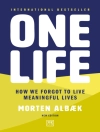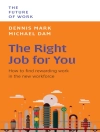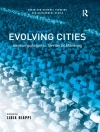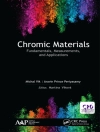In the field of ‘climate change’, no terrain goes uncontested. The terminological tug of war between activists and corporations, scientists and governments, has seen radical notions of ‘sustainability’ emptied of urgency and subordinated to the interests of capital. ‘Just Transition’ is the latest such battleground, and the conceptual keystone of the post-COP21 climate policy world. But what does it really mean?
Just Transition emerged as a framework developed within the trade union movement to encompass a range of social interventions needed to secure workers’ and frontline communities’ jobs and livelihoods as economies shift to sustainable production. Just Transitions draws on a range of perspectives from the global North and South to interrogate the overlaps, synergies and tensions between various understandings of the Just Transition approach. As the concept is entering the mainstream, has it lost its radical edge, and if so, can it be recovered?
Written by academics and activists from around the globe, this unique edited collection is the first book entirely devoted to Just Transition.
Table des matières
List of Illustrations
List of Acronyms
Acknowledgements
Introduction: The Genealogy and Contemporary Politics of Just Transitions – Dimitris Stevis (Colorado State University, USA), Edouard Morena (University of London Institute in Paris, France) and Dunja Krause (United Nations Research Institute for Social Development)
1. ‘No Jobs on a Dead Planet’: The International Trade Union Movement and Just Transition – Anabella Rosemberg (Greenpeace)
2. Business in Just Transition: The Never-Ending Story of Corporate Sustainability – Nils Moussu (Université de Lausanne, Switzerland)
3. Australian Business: Embracing, Reconceptualising or Ignoring a Just Transition in Australia – Caleb Goods (University of Western Australia, Australia)
4. Tales From the Frontlines: Building a People-Led Just Transition in Jackson, Mississippi – Kali Akuno (Cooperation Jackson, USA)
5. What Transition? Collectively Imagining a Just and Low-Carbon Future for Río Negro, Argentina – Martín Álvarez Mullally (Observatorio Petrolero Sur, Argentina), Fernando Cabrera Christiansen (Observatorio Petrolero Sur, Argentina) and Laura Maffei (Sustainlabor, Argentina)
6. Resource Rich and Access Poor: Securing a Just Transition to Renewables in South Africa – Sandra van Niekerk (Public Services International Research Unit, UK)
7. The Story of Coal in Germany: A Model for Just Transition in Europe? – Alexander Reitzenstein (E3G, Germany), Sabrina Schulz (E3G, Germany) and Felix Heilmann (E3G, Germany)
8. A Top-Down Transition: A Critical Account of Canada’s Government-Led Phase-Out of the Coal Sector – Hadrian Mertins-Kirkwood (Canadian Centre for Policy Alternatives, Canada) and Ian Hussey (Parkland Institute, Canada)
9. Just Transition Solutions and Challenges in a Neoliberal and Carbon-Intensive Economy – Darryn Snell (RMIT University, Australia)
Notes on Contributors
Index
A propos de l’auteur
Dimitris Stevis is professor of politics at Colorado State University. His research focuses on global labour and environmental politics, with particular attention to labour environmentalism and social and ecological justice. He is a founder of the Environmental Justice Working Group and co-edited an issue of the journal Globalizations .












